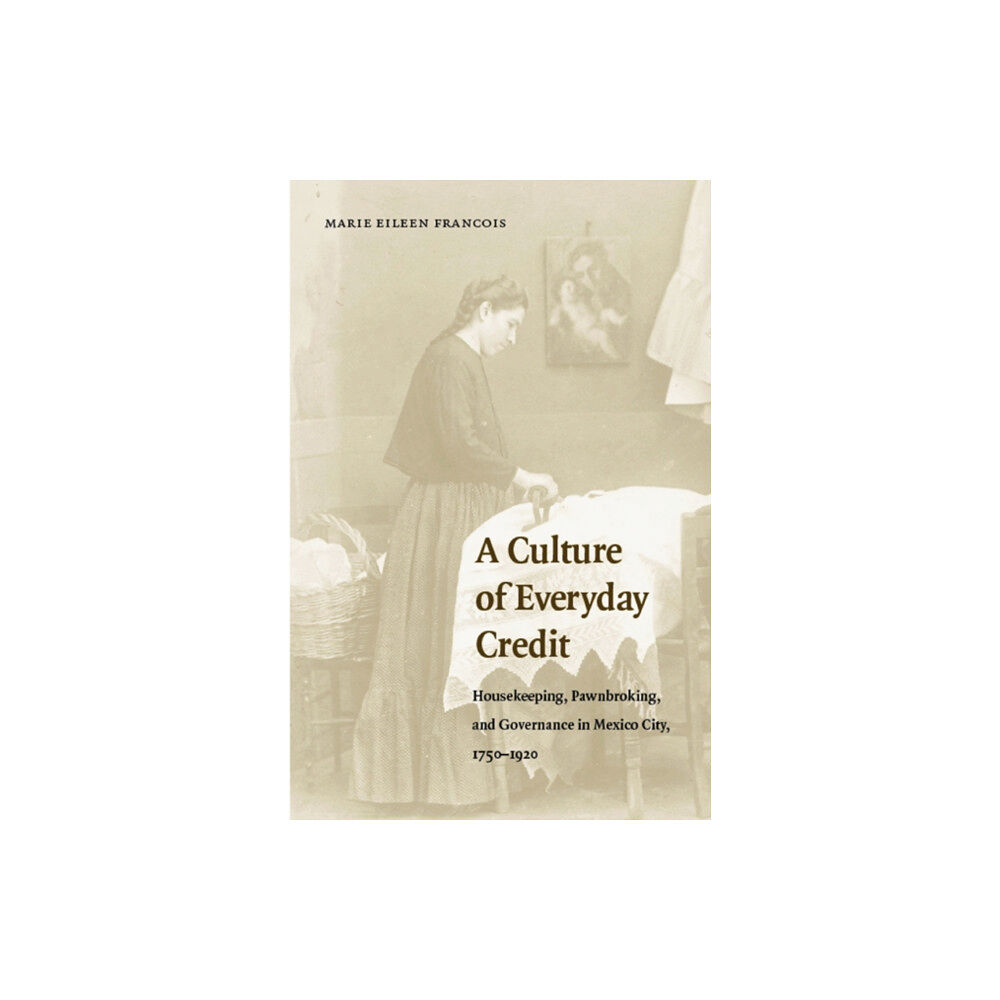- Hem
- Böcker
- Kurslitteratur
- Historia
- A Culture of Everyday Credit (häftad, eng)

A Culture of Everyday Credit (häftad, eng)
Pawning was the most common credit mechanism in Mexico City in the nineteenth century. A diverse, largely female pawning clientele from...
409 kr
455 kr
Slut i lager
- Fri frakt
Fri frakt över 299:-
Snabb leverans
Alltid låga priser
Produktbeskrivning
Pawning was the most common credit mechanism in Mexico City in the nineteenth century. A diverse, largely female pawning clientele from lower- and middle-class households regularly secured small consumption loans by hocking household goods. A two-tiered sector of public and private pawnbrokers provided collateral credit.
Rather than just providing emergency subsistence for the poor, pawnbroking facilitated consumption by Creole and mestizo middle sectors of Mexican society and enhanced identity formation for those in middling households by allowing them to cash in on material investments to maintain status during lean times.
A Culture of Everyday Credit shows how Mexican women have depended on credit to run their households since the Bourbon era and how the collateral credit business of pawnbroking developed into a profitable enterprise built on the demand for housekeeping loans as restrictions on usury waned during the nineteenth century.
Rather than just providing emergency subsistence for the poor, pawnbroking facilitated consumption by Creole and mestizo middle sectors of Mexican society and enhanced identity formation for those in middling households by allowing them to cash in on material investments to maintain status during lean times.
A Culture of Everyday Credit shows how Mexican women have depended on credit to run their households since the Bourbon era and how the collateral credit business of pawnbroking developed into a profitable enterprise built on the demand for housekeeping loans as restrictions on usury waned during the nineteenth century.
Pairing the study of household consumption with a detailed analysis of the rise of private and public pawnbroking provides an original context for understanding the role of small business in everyday life. Marie Eileen Francois weighs colonial reforms, liberal legislation, and social revolution in terms of their impact on households and pawning businesses.
Based on evidence from pawnshop inventories, censuses, legislation, petitions, literature, and newspapers, A Culture of Everyday Credit portrays households, small businesses, and government entities as intersecting arenas in one material world, a world strapped for cash throughout most of the century and turned upside down during the Mexican Revolution.
| Format | Häftad |
| Omfång | 416 sidor |
| Språk | Engelska |
| Förlag | University of Nebraska Press |
| Utgivningsdatum | 2006-12-01 |
| ISBN | 9780803269231 |
Specifikation
Böcker
- Häftad, 416, Engelska, University of Nebraska Press, 2006-12-01, 9780803269231
Leverans
Vi erbjuder flera smidiga leveransalternativ beroende på ditt postnummer, såsom Budbee Box, Early Bird, Instabox och DB Schenker. Vid köp över 299 kr är leveransen kostnadsfri, annars tillkommer en fraktavgift från 29 kr. Välj det alternativ som passar dig bäst för en bekväm leverans.
Betalning
Du kan betala tryggt och enkelt via Avarda med flera alternativ: Swish för snabb betalning, kortbetalning med VISA eller MasterCard, faktura med 30 dagars betalningstid, eller konto för flexibel delbetalning.
Specifikation
Böcker
- Format Häftad
- Antal sidor 416
- Språk Engelska
- Förlag University of Nebraska Press
- Utgivningsdatum 2006-12-01
- ISBN 9780803269231
Relaterat inom historia
Samhälle & Politik
Filosofi & Religion
Toppsäljare inom kurslitteratur
Tidigare besökta
Tillagd i varukorgen
